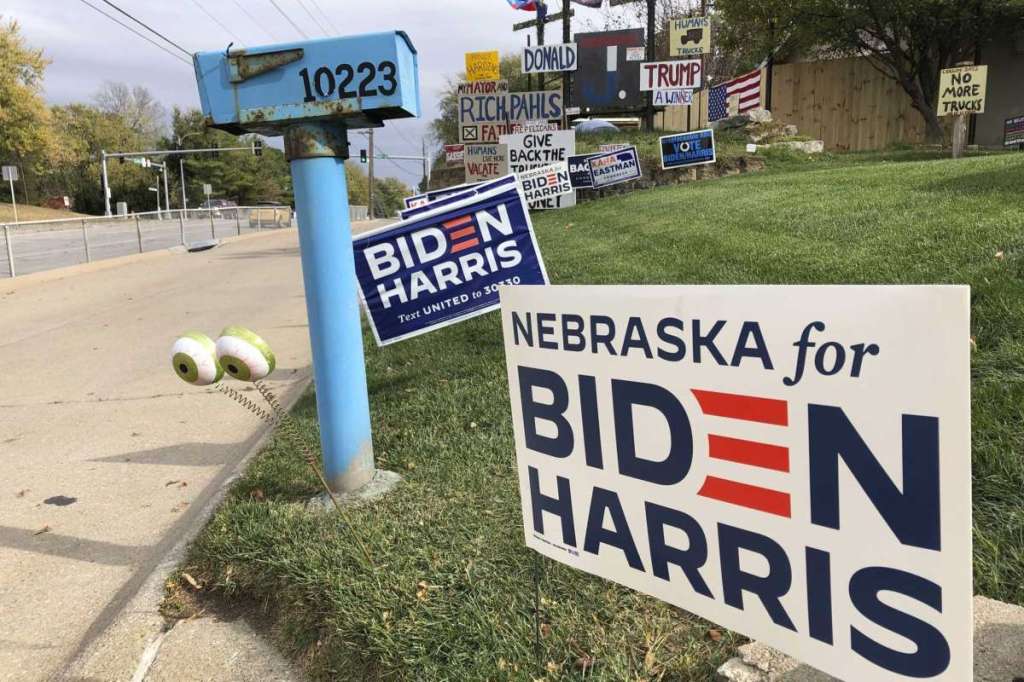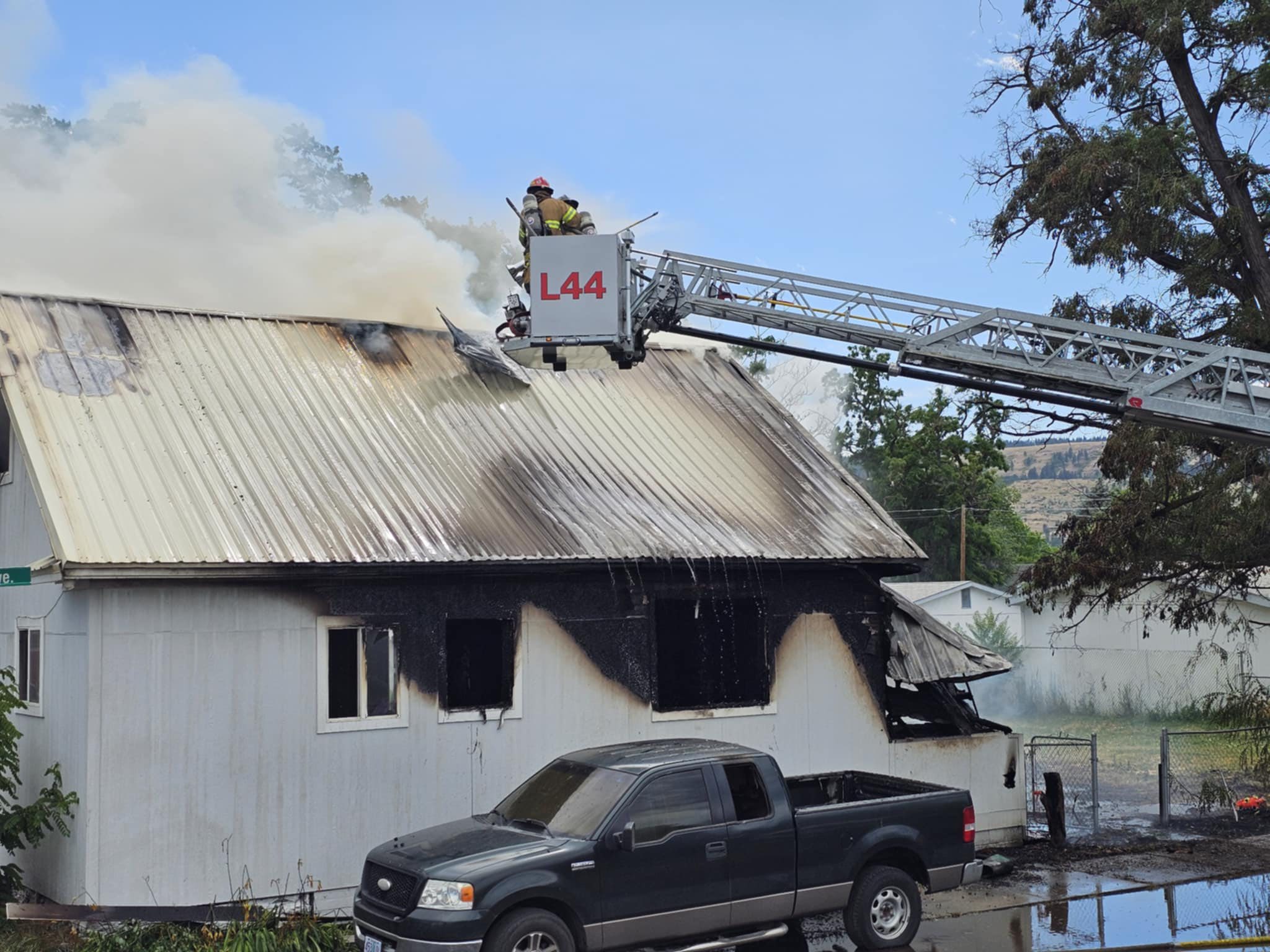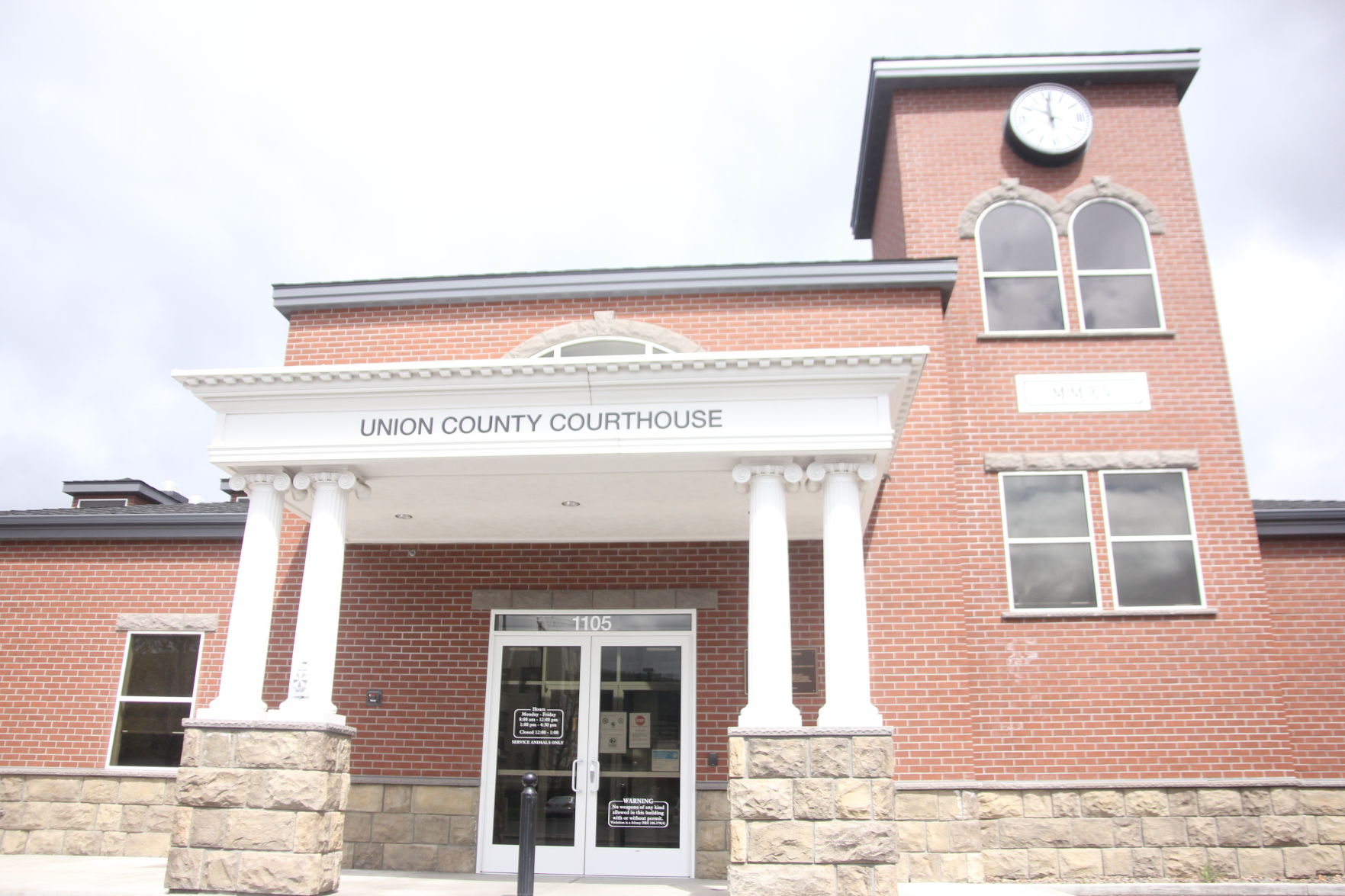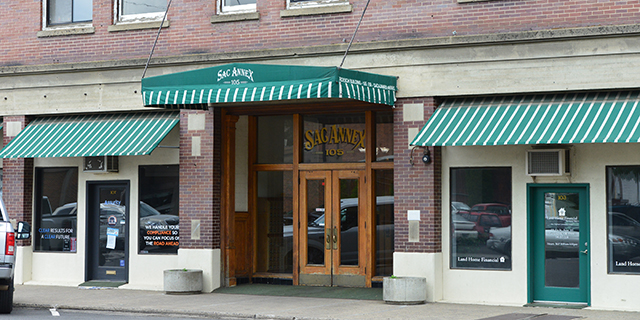Nebraska, Maine could play pivotal role in presidential race
Published 5:00 pm Friday, October 23, 2020

- A Joe Biden presidential campaign sign greets passersby Monday, Oct. 19, 2020, in Omaha, Nebraska. If the election is close, Nebraska could play a pivotal role in deciding the winner because the state is able to divide its electoral votes.
OMAHA, Neb. — Nebraska will never be mistaken for a swing state given that it hasn’t supported a Democratic presidential candidate since 1964, but if the race is close this fall, the state could have a key role in choosing the next president.
It’s all thanks to a law approved decades ago that was intended to attract presidential candidates to a state they usually ignore because it’s so reliably conservative. While the statewide vote will clearly go to President Donald Trump, former Vice President Joe Biden has a good chance of winning in the state’s 2nd Congressional District, meaning one of Nebraska’s five Electoral College votes could go to the Democrat.
But there’s a problem with that scenario: Maine.
Maine is the only other state that awards Electoral College votes by congressional district, and it could go the opposite way and award a vote to Donald Trump even as the state as a whole likely will go to Biden.
Although Nebraska and Maine take the same approach to awarding Electoral College votes — two votes for the overall winner plus votes for the winner of each congressional district — they had different motivations for their laws.
In Maine, legislators approved the new approach in 1969 in hopes of better representing voters who might be on the losing end of the statewide count but were still a substantial minority.
Nebraska arrived at the same system more than 20 years later, but lawmakers focused more on gaining the attention of presidential candidates. A Democratic legislator, DiAnna Schimek, recalled Democratic presidential candidate Bobby Kennedy’s 11-city whistle stop campaign across the state in 1968 and convinced enough Republicans that by changing the Electoral College system, the state could return to relevance.
In 2016, Trump managed to collect a single electoral vote in the 2nd District while Democrat Hillary Clinton took the state’s other three.
Nebraska Republicans were embarrassed when Democrat Barack Obama won the 2nd District’s electoral vote in 2008 and changed the district’s boundaries in 2011 to siphon off Democratic votes and avoid a repeat.
The state GOP also has called for the return of a traditional winner-take-all Electoral College system. But until then, Theresa Thibodeau, chairwoman of the Douglas County Republican Party, said she has used that vote for Obama as motivation for her follow Republicans.
“I think it was an eye-opener for a lot of people,” Thibodeau said. “Quite honestly, I think a lot of Republican voters stayed home because they thought Nebraska would stay red.”
Fred Conley, a former Democratic city councilor running for the Nebraska Legislature, said it’s clear the competitive race in the district has generated more excitement and organizing by party activists. And that, Schimek said, is why she pushed for the change so many years ago.
“I wanted to give people a feeling that their vote really counted,” she said.








